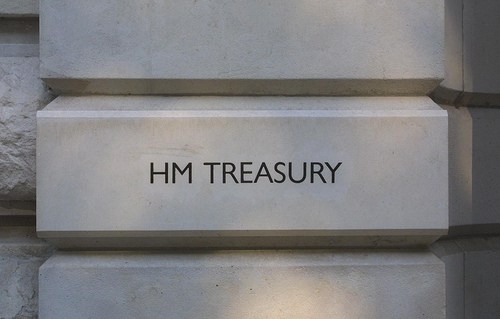The Treasury has clarified that the long-awaited pensions cold calling ban - which came into effect yesterday - specifically applies only to voice calls.
There has been confusion over whether the ban applies to voice calls and other forms of communication such as text or email but the Treasury says non-voice pension communication is already covered by other legislation.
The pensions cold calling ban, imposing potential fines of up to £500,000 on firms which make pension cold calls, was introduced yesterday after a long campaign by Financial Planner Darren Cooke of Red Circle and leading figures such as Sir Steve Webb of Royal London.
The aim of the ban is to cut down on the rising number of pension scams which often begin with a cold call offering a “free pensions review” or pension transfer advice.
A Treasury spokesman told Financial Planning Today: “The pensions cold calling ban does not include texts and emails, because they are already restricted under the Privacy and Electronic Communications Regulations (EC Directive) 2003 (PECR). The ban is just about calls.
There had been discussion during the drafting of the legislation about the ban being extended to specifically cover text and other communication but the Treasury spokesman said that the ban was not extended to include other forms of communication because these were already covered by other laws which cover direct marketing.
These laws already restrict pensions communication under the Privacy and Electronic Communications Regulations (EC Directive) 2003 (PECR) which sit alongside the Data Protection Act 2018 and GDPR and “give people specific privacy rights in relation to electronic communications.”
The Treasury spokesman added: “Cold calling is the most common method used to initiate pension fraud. Therefore banning cold calling on pensions is the most effective route to tackling scams. For example, Citizens Advice’s most recent statistics suggest that 97% of pension fraud cases brought to Citizens Advice stemmed from cold calling.”
Darren Cooke of Red Circle said the most important fact was that cold calling was now banned and there was clarity about this from a consumer protection point of view. Consumers who receive a pensions cold call can “just hang up” knowing they should not be called about their pension by someone they do not know, he said.
The publicity about the ban was also very helpful, he said, in drawing consumers’ attention to the risks and dangers of taking cold calls about pensions from unknown parties.
From yesterday unsolicited calls about pensions have become illegal and companies that break the rules can face fines of up to £500,000.
Cold calls are defined as “unwanted, unsolicited phone calls” to people about their pensions.”
The ban prohibits cold-calling in relation to pensions, except where:
•the caller is authorised by the FCA, or is the trustee or manager of an occupational or personal pension scheme, and
•the recipient of the call consents to calls, or has an existing relationship with the caller
While the ban has been widely welcomed some experts have criticised the fact that texts, social media messages and emails are not specifically covered by the new rules as a risk to consumers and they fear the new ban will not work for this reason.
Mr Cooke said crooks who have used cold calls in the past would still try to target vulnerable people, often individuals with substantial pension pots in their 40s, 50s and 60s. He said it would be impossible to ban all forms of pension scams targeting savers but the ban was still a “milestone” and a step in the right direction.
Research by the Money Advice Service suggests that there could be as many 250 million scam calls per year. According to the FCA, pension scammers stole on average £91,000 per victim last year.

